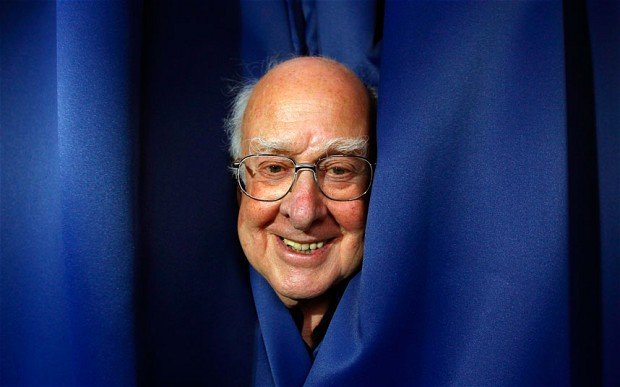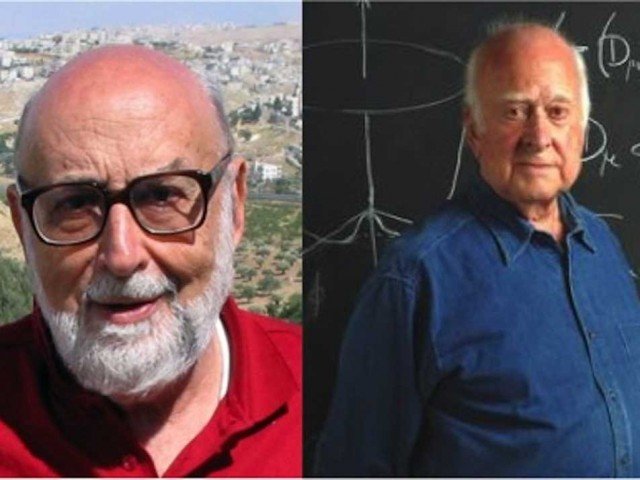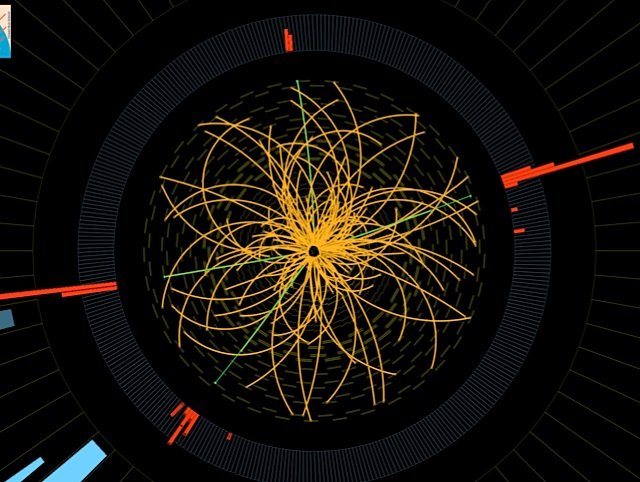Prof. Peter Higgs has revealed he did not know he had won the Nobel Prize until a woman congratulated him in the street.
Prof. Peter Higgs, 84, who does not own a mobile phone, said a former neighbor had pulled up in her car as he was returning from lunch in Edinburgh.
He added: “She congratulated me on the news and I said <<oh, what news?>>”
The woman had been alerted by her daughter in London that Prof. Peter Higgs had won the award, he revealed.
He added: “I heard more about it obviously when I got home and started reading the messages.”
The emeritus professor at the University of Edinburgh was recognized by the Royal Swedish Academy of Sciences for his work on the theory of the particle which shares his name, the Higgs boson.
Prof. Peter Higgs shares this year’s physics prize with Francois Englert of Belgium, and joins the ranks of past Nobel winners including Marie Curie and Albert Einstein.

Prof. Peter Higgs has revealed he did not know he had won the Nobel Prize until a woman congratulated him in the street
The existence of the so-called “God particle”, said to give matter its substance, or mass, was proved almost 50 years later by a team from the European nuclear research facility (CERN) and its Large Hadron Collider (LHC) in Geneva, Switzerland.
Speaking for the first time about the award at a media conference at the University of Edinburgh, he said: “How do I feel? Well, obviously I’m delighted and rather relieved in a sense that it’s all over. It has been a long time coming.”
An old friend told him he had been nominated as far back as 1980, he said.
Prof. Peter Higgs added: “In terms of later events, it seemed to me for many years that the experimental verification might not come in my lifetime.
“But since the start up of the LHC it has been pretty clear that they would get there, and despite some mishaps they did get there.”
Stressing the involvement of other theorists and CERN, he added: “I think clearly they should, but it is going to be even more difficult for the Nobel Committee to allocate the credit when it comes to an organization like CERN.
“I should remind you that although only two of us have shared this prize, Francois Englert of Brussels and myself, that the work in 1964 involved three groups of people, (including) two in Brussels.
“Unfortunately Robert Brout died a few years ago so is no longer able to be awarded the prize, but he would certainly have been one of the winners if he had still been alive.
“But there were three others who also contributed and it is already difficult to allocate the credit amongst the theorists.
“Although a lot of people seem to think I did all this single-handed, it was actually part of a theoretical programme which had been started in 1960.”
Prof. Peter Higgs was born in Newcastle, but developed his theory while working at the University of Edinburgh.
The landmark research that defined what was to become known as the Higgs boson was published in 1964.
Discovering the particle became one of the most sought-after goals in science, and the team of scientists behind the $10 billion LHC at CERN made proving its existence a key priority.
In July of last year, physicists at CERN confirmed the discovery of a particle consistent with the Higgs boson.
Prof. Peter Higgs, who had often been uncomfortable with the attention his theory brought, was in Geneva to hear the news, and wiped a tear from his eye as the announcement was made.
Reacting to the discovery at the time, Prof. Peter Higgs told reporters: “It’s very nice to be right sometimes.”
The Nobel Prize in Physics 2013 was awarded jointly to François Englert and Peter W. Higgs for their work on the theory of the Higgs boson.
Peter Higgs, from the UK, and François Englert from Belgium, shared the prize “for the theoretical discovery of a mechanism that contributes to our understanding of the origin of mass of subatomic particles, and which recently was confirmed through the discovery of the predicted fundamental particle, by the ATLAS and CMS experiments at CERN’s Large Hadron Collider”.
In the 1960s they were among several physicists who proposed a mechanism to explain why the most basic building blocks of the Universe have mass.
The mechanism predicts a particle – the Higgs boson – which was finally discovered in 2012 at the Large Hadron Collider at CERN, in Switzerland.

The Nobel Prize in Physics 2013 was awarded jointly to François Englert and Peter W. Higgs for their work on the theory of the Higgs boson
“This year’s prize is about something small that makes all the difference,” said Staffan Normark, permanent secretary of the Royal Swedish Academy of Sciences.
FrançoisEnglert said he was “very happy” to win the award.
“At first I thought I didn’t have it [the prize] because I didn’t see the announcement,” he told the Nobel committee, after their news conference was delayed by more than an hour.
Prof. Peter Higgs, of the University of Edinburgh, said: “I am overwhelmed to receive this award and thank the Royal Swedish Academy.
“I would also like to congratulate all those who have contributed to the discovery of this new particle and to thank my family, friends and colleagues for their support.
“I hope this recognition of fundamental science will help raise awareness of the value of blue-sky research.”
CERN director general Rolf Heuer said he was “thrilled” that this year’s prize had gone to particle physics.
“The discovery of the Higgs boson at CERN last year, which validates the Brout-Englert-Higgs mechanism, marks the culmination of decades of intellectual effort by many people around the world,” he said.
Scientists at CERN in Switzerland will announce that the elusive Higgs boson “God Particle” has been found at a press conference next week, according to new reports.
Five leading theoretical physicists have been invited to the event on Wednesday – sparking speculation that the particle has been discovered.
Scientists at the Large Hadron Collider are expected to say they are 99.99% certain it has been found – which is known as “four sigma” level.
Physicists first predicted that the Higgs Boson subatomic particle exists 48 years ago.
Peter Higgs, the Edinburgh University emeritus professor of physics that the particle is named after, is among those who have been called to the press conference in Switzerland.

Scientists at CERN in Switzerland will announce that the elusive Higgs boson “God Particle” has been found at a press conference next week
The management at CERN wants the two teams of scientists to reach the “five sigma” level of certainty with their results – so they are 99.99995% sure – such is the significance of the results.
The Higgs boson is regarded as the key to understanding the universe. Physicists say its job is to give the particles that make up atoms their mass.
Without this mass, these particles would zip though the cosmos at the speed of light, unable to bind together to form the atoms that make up everything in the universe, from planets to people.
The collider, housed in an 18-mile tunnel buried deep underground near the French-Swiss border, smashes beams of protons – sub-atomic particles – together at close to the speed of light, recreating the conditions that existed a fraction of a second after the Big Bang.
If the physicists’ theory is correct, a few Higgs bosons should be created in every trillion collisions, before rapidly decaying.
This decay would leave behind a “footprint” that would show up as a bump in their graphs.
However, despite 1,600 trillion collisions being created in the tunnel – there have been fewer than 300 potential Higgs particles.
Now it is thought that two separate teams of scientists, who run independent experiments in secret from each other, have both uncovered evidence of the particle.
However, the two groups, CMS and ATLAS, are expected to stop short of confirming its existence.



